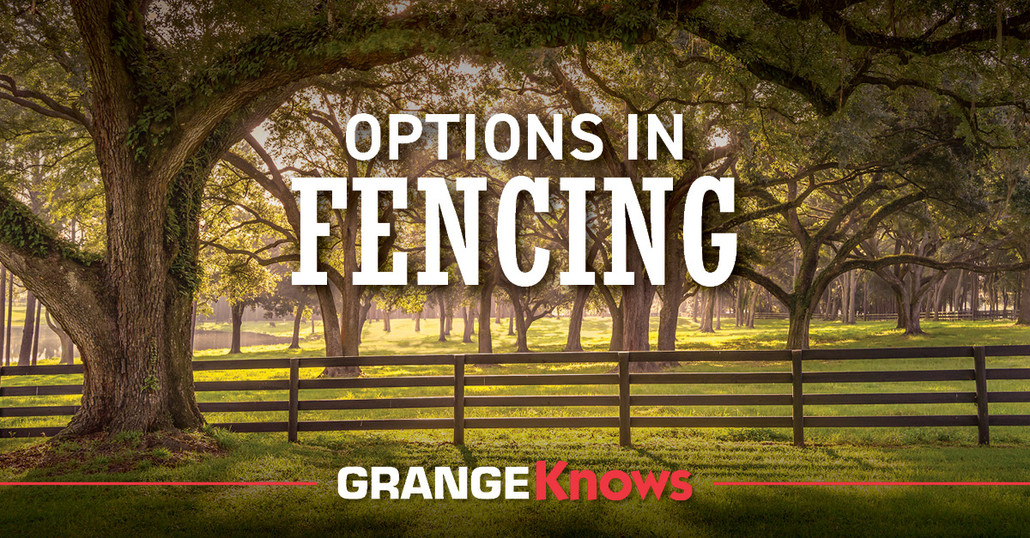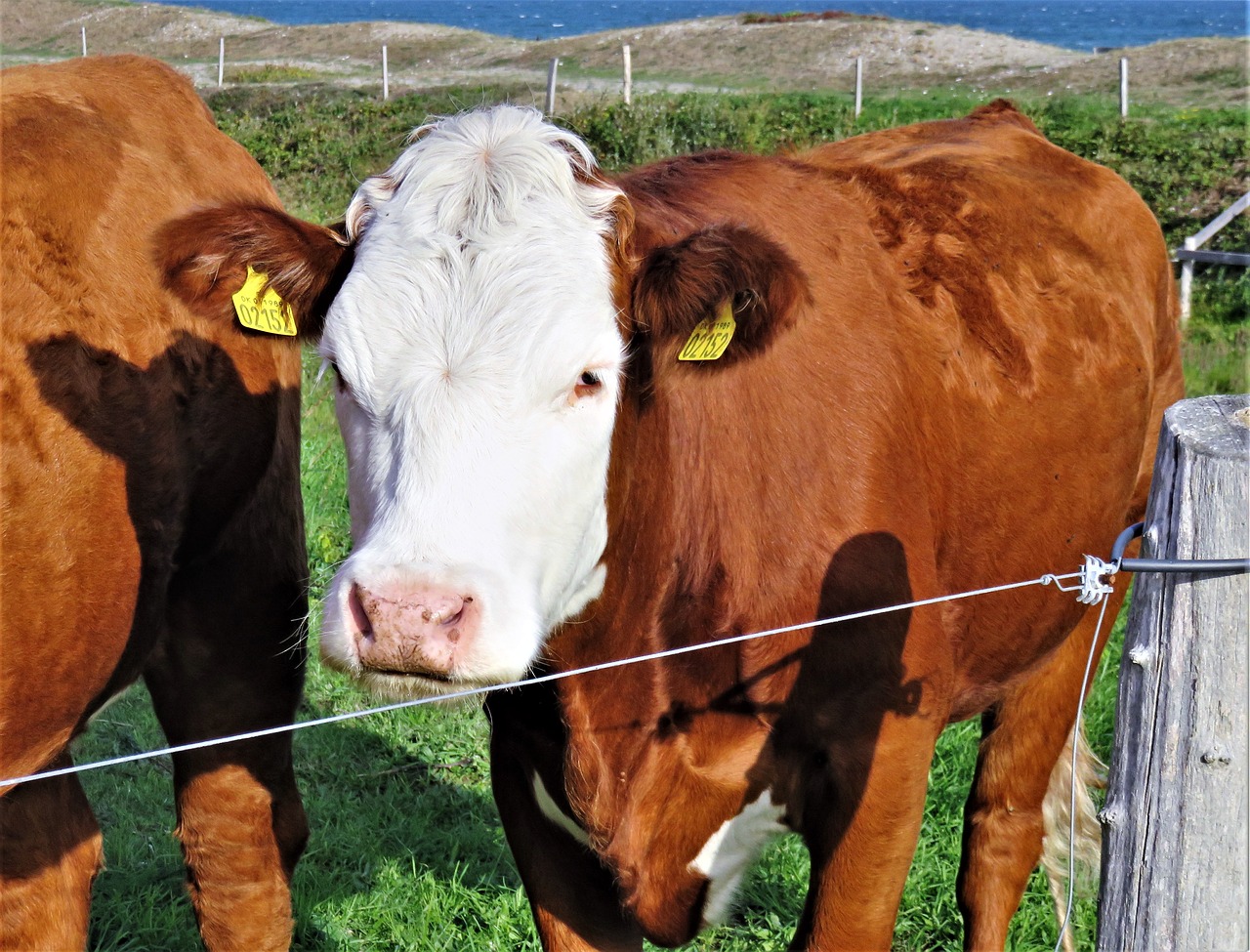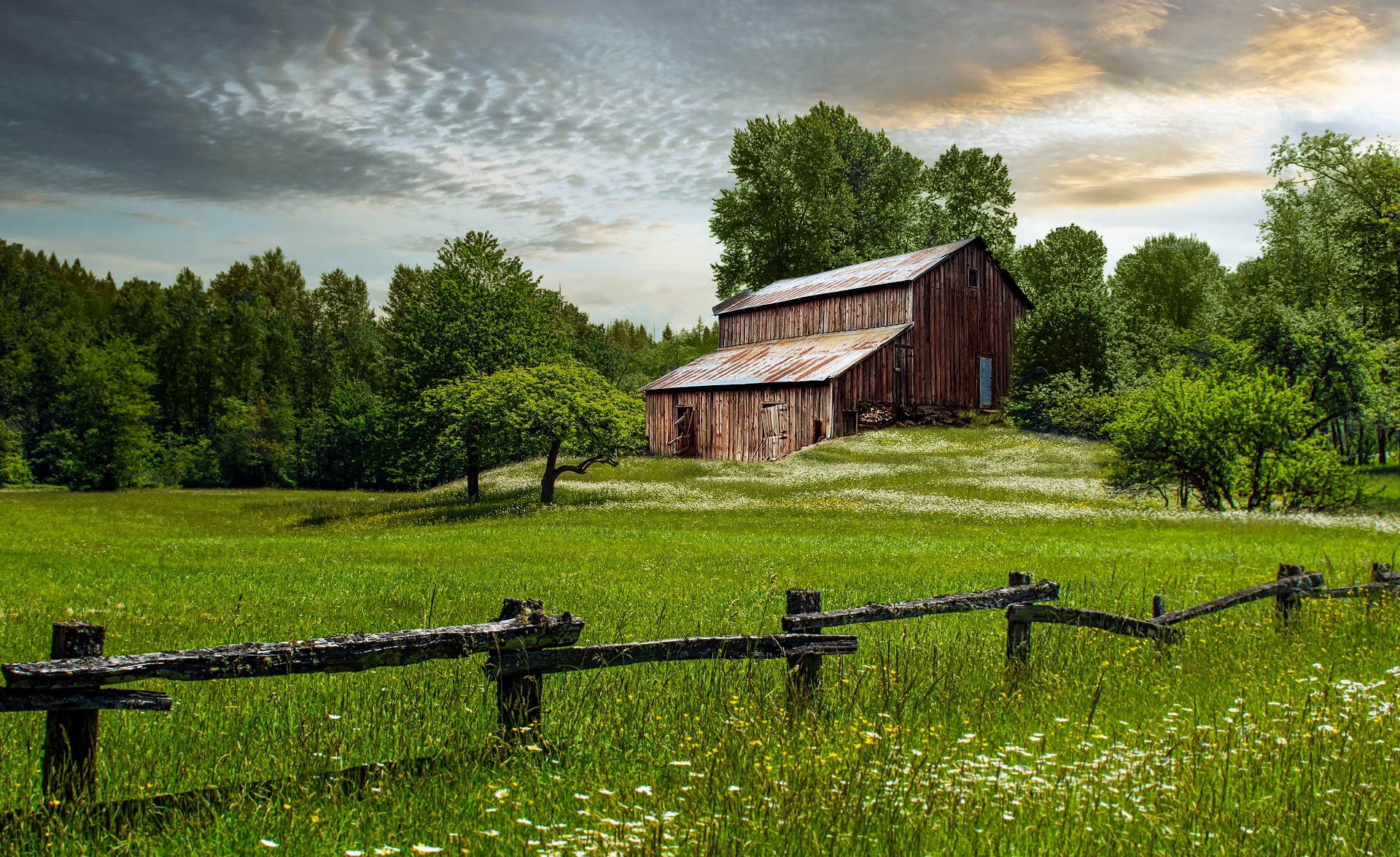
Options in Fencing for Livestock
Posted by Grange Co-op on 28th Jun 2022
American poet Robert Frost once wrote that “Good fences make good neighbors.” That’s because they mark boundaries and help discourage trespassing. But, when it comes to livestock, fencing does a lot more than that. It keeps animals in a lot or field where they will be safe. A good fence also keeps out predators that will attack and kill some animals.
What Happens When Livestock “Escapes”

As most livestock owners will tell you, there is always a renegade in every herd. All it takes is a single cow or horse with an innate desire to roam to lead the rest of the pack through a broken fence and onto someone else’s property. When animals escape their confines, a lot of things can go wrong, including:
- They find their way into traffic and cause a serious accident
- They damage your neighbor’s property
- Your livestock gets injured or killed
- Some of your animals are never recovered
- Unwanted breeding with another owner’s livestock
- You end up on the wrong end of a lawsuit
Farmers are protected to some degree from getting sued when their livestock escapes and causes an accident or property damage. Although the laws differ somewhat from state to state, you must be negligent in installing or maintaining your fencing before you are liable for your livestock. That’s just one more reason to use the right fencing for your livestock and keep it well-maintained.
Installing fencing on your farm takes time and money. Learn all your options before you start. Determine which materials will work best for your livestock and your farm and factor in the maintenance cost before deciding which choice fits your budget.
Welded Wire Fencing – Welded fencing is strong and inflexible, helping hold animals in. It provides an excellent barrier for animals that are normally difficult to contain. Since the openings don't bend, smaller livestock such as rabbits and chickens aren’t as likely to go through the fencing.
Welded fencing lasts as long as 20 years with minimal maintenance except in areas with extreme winter weather. If you live in a region that is prone to snow, you will need to install heavy-duty posts to support the weight.
Woven Wire Fencing – Woven fencing, or field fencing, has vertical and horizontal wires that create a simple latticework pattern. It is connected with a loop that allows it to "give" in response to pressure. This allows the fence to withstand the impact of large animals without causing any damage. Woven wire fencing can endure a lot of twisting, bending, and pulling and still retain its integrity.
The loose structure of woven wire makes it more susceptible to climbing animals such as opossums and raccoons. To keep these animals out, you might use an electric wire within the fence structure or across the top. Your overall fencing plan depends on which animals you want to keep in and those you want to keep out.
Corral Panel – Corral panels are strong, versatile options for fencing in horses, cattle, sheep, goats, and other mid-size to large livestock. They are easy to install, so you can usually do the job yourself. Panels from Powder River or Behlen come with a pin and clip closure that lets you easily fit panels together. For larger enclosures, you can use clips to fix panels to wood posts, too. The end result is a sturdy steel fence that looks attractive and lasts for many years.
Electric Fence – An electric fence is often used in combination with other fencing types, such as a woven wire. The fence uses a high-voltage, low-amp charge to cables that provide a shock to animals that come in contact with them. They come in a wide range of charges and hookup options that vary significantly in price. However, most farmers find that electric fencing is a versatile and cost-effective tool for containing livestock. In addition to its use for containment, it also aids in rotational grazing.
Field Fencing – This is another type of woven-wire fencing that typically has narrower mesh at the bottom and wider mesh at the top. The smaller mesh prevents large animals like cows and horses from tangling their hooves in the mesh. Field fencing is versatile enough to use on all types of terrains, and it is galvanized to resist weathering. It’s a good choice for large animals like cattle, hogs, horses, and more. At about $.90 per foot, excluding the cost of fence posts and installation, it’s one of the more affordable options.
Barbed Wire – Barbed wire is another classic fencing choice that also falls on the lower end of the cost range. Barbed wire averages from $.10 to $.15 per foot for each strand, excluding the cost of fence posts and installation. While barbed wire is easy to install and repair, unfortunately, it isn’t the first choice in fencing for horses since it can cause serious injuries.
Shop Grange Co-op for All Your Fencing Needs

Grange Co-op carries a range of the most popular fencing materials along with fence posts, gates, tools, and accessories. Let us help you build the perfect confinement for your livestock or keep wild animals away from your home or barn. If you have questions about any of our products, contact us today for more information.
